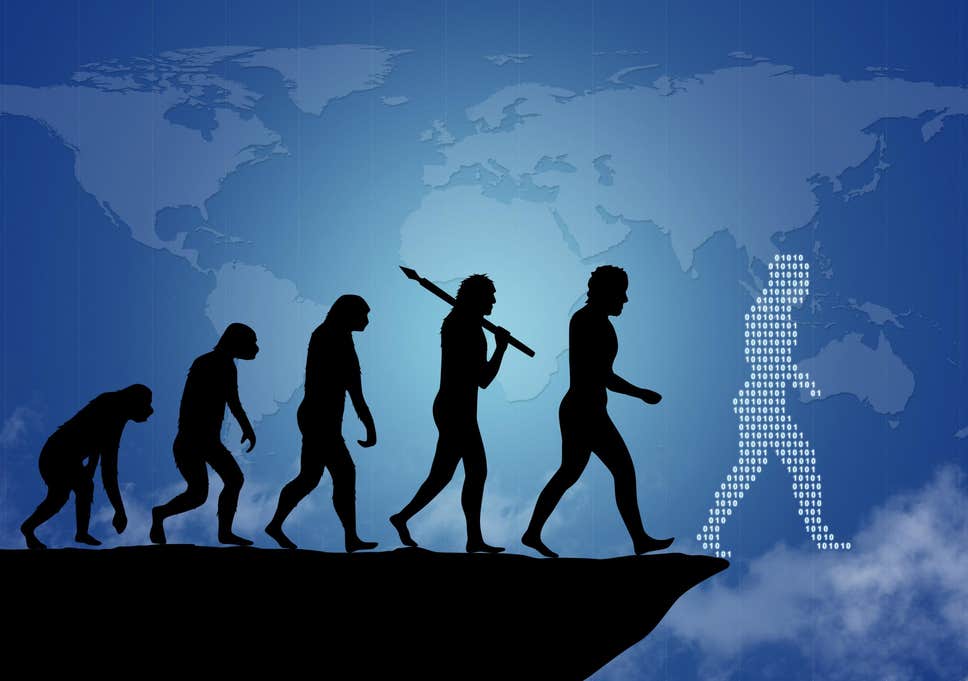
Everyday on the news I hear stories about the disproportionately negative impact that some event, disease, or change in the weather has had on a particular group.
It’s social media’s disproportionate harming of teenage girls. How Covid-19 is more lethal for men in their 80’s than women. That communities of color bear more of the consequences of climate change, of poor health care or of having fewer engaged police.
I often have the radio on when I’m working, and these kinds of “slicing and dicing of injuries” are a fairly regular drumbeat, whatever “news outlet” I happen to be listening to.
Reporting like this almost always strikes me as “likely to be true”—but only up to a point. With some stories, it depends on the initial data the storyteller has consulted. For example, if you set out to prove that one group is more oppressed than another, you start your inquiry with data from the supposedly oppressed group. But I find myself asking more and more: what if the storyteller started out with broader data sets?
Is the real story that the coronovirus or climate change or disengaged police are more lethal to (pick your victims by age, race or gender) or that all of these harms impact poor people far more negatively than rich people, or people who live in rural communities more than in urban communities, or Albanians more than, say, Americans?
Other times, the class of sufferers has to do with whether there is enough data in the first place. Do more teenage girls (than say, boys) suffer from social media’s consequences, or does the singular focus on girls have more to do with it being easier for researchers to pin-point the onset of puberty (that first period) in girls than its onset in boys, and therefore a more precise way to measure the time-frame of suffering?
Given these variables, why insist upon picking out a select-few to be victims when, in truth, there are (as often as not) many more sufferers who are likely to be out there?
So when I’m listening to a news reporter or researcher or non-resident expert tell me about a new harm and exactly who’s suffering its consequences, I often talk back to the radio saying: Really? What about all these people, or those? Aren’t they negatively impacted too?
That’s what happened when I was listening to Matt Richtel being interviewed on Fresh Air recently. But given the extraordinary care he took in explaining how teenage girls are disproportionately suffering from mental distress, illness and suicidal ideation given the daily assaults on their still-developing brains, it seemed pretty clear that he didn’t have a political agenda behind his reporting. And while credentials are rarely dispositive they still make a difference to me. (Richtel is not only a long-time reporter for the New York Times on its technology and health beat, he has also won a Pulitizer Prize for some of that reporting.) Hearing him I also liked the way he chose his words and put himself behind them, so I was inclined to believe in what he was saying. Maybe he wasn’t trying to exclude teenage boys, or, for that matter, the rest of us from the scope of his reported concerns.
But throughout that lengthy interview—and in others of his that I’ve listened to since or in his other stories on this topic—I kept coming back to the broader impacts that seemed likely: So maybe teenage girls are more negatively impacted “by how things are today” than others (who are neither girls nor teenagers), but to some fairly significant extent, isn’t ALMOST EVERYBODY in the U.S (and certainly in other places too) suffering from at least some of the same mental distress, illness and suicidal ideation as the fairly circumscribed group of victims that you’ve examined?
In other words, while Richtel has clearly found a story in this subset of “more susceptible” young girls, isn’t there a bigger and more profound story that he’s not telling (and almost no one is telling) about how living today, amidst the assault of (let’s call it) “modern life,” damages almost all of us because none of our brains are wired to withstand the bombardments we’re confronting today?

Taking a day off from it all, in an alternate reality.
This is where I should probably account for my own storytelling biases.
It’s January after all, the middle of winter here in Philly, grey on many days, chilly to cold on nearly all of them, and Spring’s bees and flowers are more than two months off.
I’ve also been “under the weather” for longer than I’d like with one of the bad bugs going around, from damage to the real estate here from all the freezing and thawing, and because Wally (the dog)’s been ailing from his own stubborn maladies, so maybe I’m more inclined than usual to see my world’s clouds than their rosier lining.
But at the same time, it also seems true that without “all the hard data” easily in hand, there’s no sad story being told today about the depressing state of almost everyone’s sanity, as the rest of us suffer from corrosion and damage that feels a lot like what Richtel describes.
Now I suppose that my disquiets and seasonal-affective-disorders could just be angling to give my misery more company (and maybe I am more susceptible to short circuits like these)—but then again, maybe not. . . .
For some reason, this also seems the right time to say a few words about the photos this week and my rationale for including them, depicting as they do a ritual I previously knew nothing about.
Silvesterklaus are masked revelers who take part in Saint Sylvester’s Day festivities in the hamlets of Appenzell, Switzerland on the last day of each passing year. These New Year’s mummers (no doubt an inspiration for our annual celebrants here) put on strange costumes, with huge ringing bells, before walking from house to house, “singing a very slow yodel,” and wishing their neighbors the best in the coming year. (The last two pictures appearing here come to you care of photographer Markus Bollmann. I don’t know who snapped the one up top.)
In addition to occurring just before our current month got underway, the Silvesterklausen tradition is also (clearly) a form of escape into an alternative reality, which is something I’d often like to do when confronted with the apparent mismatch between my neurological wiring and the assaultive realities being inflicted upon it. So these pictures seemed apt today.
That mismatch is the breakdown Matt Richtel is about to tell us more about and that perhaps should be diagnosed in many more of us as we move deeper into the perils of 2023.

Horns and tusks (and whatever that is on the nose and cheeks) may be required.
Over the past year, Richtel has been interviewing American teens, their families and health care providers (usually overwhelmed and under-qualified pediatricians) about the mental health crisis impacting those teens as well as drawing conclusions from what he’s discovered. His reporting has been gathered by the Times under an umbrella that Richtel and his newspaper calls “The Inner Pandemic.”
Instead of blaming the usual culprit—social media—he includes it as a subset of a greater environmental challenge that’s overwhelming teenage brains at a time when they’re hungry for more social information (to discover their places in the world), but also at a time when their brains are simply not developed enough to be able to process the volume and velocity of inputs that are coming their way.
It’s really a much broader technological shift that delivers information not just directly to the kids, but to the kids through their parents, who are also on media all the time. Their parents may be talking about the state of the world, or what they heard, or academic competition, [or] what’s happening well beyond the walls of their community. So this is a much broader shift into a technologically fast-paced environment. That’s the environmental side that we’re all in.
Perhaps not surprisingly, the damage to teenage mental health coincides with the increasing availability of smartphones and other devices that only fairly recently have become widely available and integral parts of our daily lives. Says Richtel:
If you look at, say, an episode of major depression [among teens], it has risen 60% since 2007. The suicide rate, which had been stable from 2000 to 2007, goes up 60% after 2007 to 2018. And among Black adolescents, we see suicide attempts leaping 80%, outpacing every other ethnic group.
(In my counseling work with local pre-teens who’d lost their caregivers I’ve seen several of these meltdowns and felt some of the pain that even younger kids in this City have been buffeted by.) But the parts of young brains that can make at least some sense out of this information barrage have simply not developed at the pace that our tech-driven environments are confronting them with new and often destabilizing information. This is the “mismatch” that Richtel identifies.
The best explanation I’ve heard – and it is hypothesized, not proven but based on some really good science – is that young people are grappling with a neurological mismatch between what their brains are capable of right now and the level of information and the noisy environment they confront. …The part of their brains that makes sense of all this information is still moving at the pace it always has [when they were younger. So while] they’re awake to [this new firehose of] information, they’re not able to make sense of it.
To make matters worse, the mental health system (as it was in 2007 and remains today) is ill-equipped to handle the volume of teenage distress, depression and suicidal behaviors that it’s confronting. To the extent there are any frontline first-responders to this crisis, they tend to be pediatricians who are rarely trained to provide their patients with mental health care. Moreover, the drug treatment therapies that are available are often ineffective and frequently harmful. “The Inner Pandemic” is both the rise in casualties and the lack of a health care system that’s equipped to treat them.
Interestingly, to help his listeners and readers understand the new categories of harms that are visiting young people, Richtel mentions the stresses that also impact the rest of us these days.
So I know that for me, when things get overwhelming, I can feel paralyzed at times. I can feel really profound anxiety. Which of these difficult choices am I going to make when there’s job issues? Where should the family live? Where should the kids go to school? Now take that level of complexity and choice and layer it onto a brain that is reaching puberty early, is awake to all this stuff, [but] can’t make sense of it.
And that was the second or third time it hit me. While Richtel’s story is about one tragically challenged cohort—and there is no denying the enormity of the dilemma for teens—isn’t this story also about the rest of us as we struggle to respond to the same “noisy,” tech-amped environment? Even with our “fully-developed, adult brains” (whatever that means), how much less susceptible are the rest of us to the same kinds of neurological mismatch and distress?
In other words, aren’t all people (including you and me) at least somewhat susceptible to the damages caused by this brave new world that we suddenly find ourselves in?
Reading and hearing Richtel’s reportage over the past few weeks was not the first time that I’ve asked this question. Sometime “tech humanist” and long-time technology commentator Tristan Harris talked about the “misalignment” of our emotions, institutions and devices in an op-ed he wrote in 2019 called “Our Brains Are No Match for Our Technology,” and I worried about it at the time in a post called “Finding the Will to Protect Our Humanity.” In his essay, Harris noted that:
[O]ur Paleolithic brains aren’t build for omniscient awareness of the world’s suffering. Our online news feeds aggregate all the world’s pain and cruelty, dragging our brains into a kind of learned helplessness. Technology that provides us with near complete knowledge without a commensurate level of agency isn’t humane….Simply put, technology has outmatched our brains, diminishing our capacity to address the world’s most pressing challenges….[As a result,] the attention [and distraction] economy has turned us into a civilization [that is] maladapted for its own survival.
In other words, Harris argued that we’re so overwhelmed by “the world’s” 24/7 wars, genocide, oppression, environmental catastrophe and political chaos that we’re rendered “helpless” by the over-load, while, at the same time, the technology that brings it to us leaves us high-and-dry instead of providing us with the means (or “agency”) to feel that we could ever make a difference against even a fraction of what besets us. And as if that isn’t enough, don’t our adult brains also have to process all of the tech-driven peer pressures that teenagers do?
Matt Richtel and his examination of our “too loud and insistent” environment adds grist to Harris’s mill (albeit through his limited category of witnesses) while also advising us about the tragic range of the mental health meltdown they’re suffering and the equally tragic lack of a health care infrastructure to either stop or repair the resulting damage. By doing so, Richtel provides a kind of bridge between the “brain mismatch” that both he and Harris identify and Harris’s sobering conclusion that we may be finding ourselves “maladapted for our own survival” without a lot more insulation than we have now from the invasively harmful world we’ve created.
For all kinds of personal reasons—and maybe some less subjective ones too—I’m feeling their sense of futility too this week.
This post was adapted from my January 22, 2023 newsletter. Newsletters are delivered to subscribers’ in-boxes every Sunday morning, and sometimes I post the content from one of them here. You can subscribe (and not miss any of them) by leaving your email address in the column to the right.

